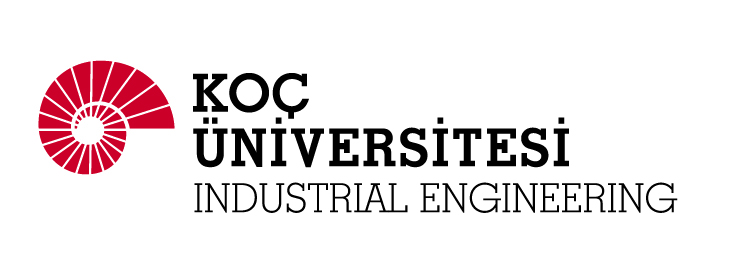PhD Program
Profitable design and operation of modern industrial systems requires integration of human, material, equipment and financial resources. In recent years this integration has become tighter due to the inclusion of information technology, and resulted in more complex systems. Industrial Engineering research focuses on quantitative analysis, synthesis and management of such complex systems. The affiliated faculty members come from the Industrial Engineering department of the College of Engineering, the Operations and Information Systems group of the College of Administrative Sciences and Economics, and other related fields. Our research areas are diverse, including Logistics, Supply Chain Management, Service Operations, Production Systems, Stochastic Processes, Financial Engineering, Mathematical Programming, Data Mining and Bioinformatics. The programs are built on the basic methodologies of operations research and their applications in manufacturing, distribution and service industries. Graduates of the M.Sc. program have been placed in respectable Ph.D. programs in North America, Europe and Türkiye as well as various professional positions in industry.
Degree Requirements
Students can apply to the Ph.D. programs with a B.S. or M.S. degree. The Ph.D. degree requires successful completion of 14 courses within 3 years and take the Qualifying Examination within 7th semester at latest beyond the B.S. degree and 7 courses within 2 years and take the Qualifying Examination within 5th semester at latest beyond the M.S. degree. In addition to the credit courses, students must complete the non-credit courses; KOLT 500: KOLT Graduate Teaching Assistant Training, INDR 590: Seminar, ENGL 500: Academic Writing, ETHR 500: Scientific Research Methods and Research and Publication Ethics, TEAC 500: Teaching Experience and IEOM 695: PhD Thesis Course.
The PhD Qualification exam structure of the IEOM program
Exam Time: The PhD Qualification Exams will be administered one week after the final exams of the semester. For Spring 2016, the exams will be tentatively set for the first and second weeks of June. The exact date will be announced after consulting with your academic advisors.
The PhD Qualification of the IEOM program includes 3 parts:
1. In-Class written exam part,
2. Take-Home written exam part,
3. Oral Exam exam part
In-Class written part:
We have 4 required courses in the MS+PhD program:
MS: INDR 501, INDR 503
PhD: INDR 511, INDR 513
There are also a variety of courses offered in the last two years: INDR520, INDR530, INDR 550 (Game Theory), INDR 551 (Machine Intelligence), INDR562, INDR564, INDR566, INDR568, INDR573, INDR578, INDR583, INDR584
The in-class part includes two types of questions: Required and Optional
The Required part will include one question from each required course in the MS and PhD course.
The Optional part is flexible and students can choose questions from the courses offered in the last two years, individual faculty who volunteer to ask optional questions and also visiting committee members from other universities. The student will select a total of four questions from the optional questions pool. The students must consult their academic advisors and their agreement on the optional questions. The total number of questions will be 8. The selection of the optional questions will be made by the middle of the semester.
Take-Home part:
Take-home part includes six questions. Out of these six, three must be from the required courses and three is from optional questions that can also include a required course (maximum 1 questions per course), other courses offered in the last two years, individual faculty who volunteer to ask optional questions and also visiting committee members from other university. Since we will give 6 days to complete the take-home part, simple coding that can be completed in one to one-and-a-half days can be asked.
Oral Exam:
A five-member committee will be established. This committee includes the academic advisor, two members from other universities and two members from the program. An examination committee will be assigned for each student. The committee will conduct the exam and the oral exam score will be determined by the committee.
The results of the in-class, take-home and oral exam will be collected and the final score will be calculated as the average of the three exams.
